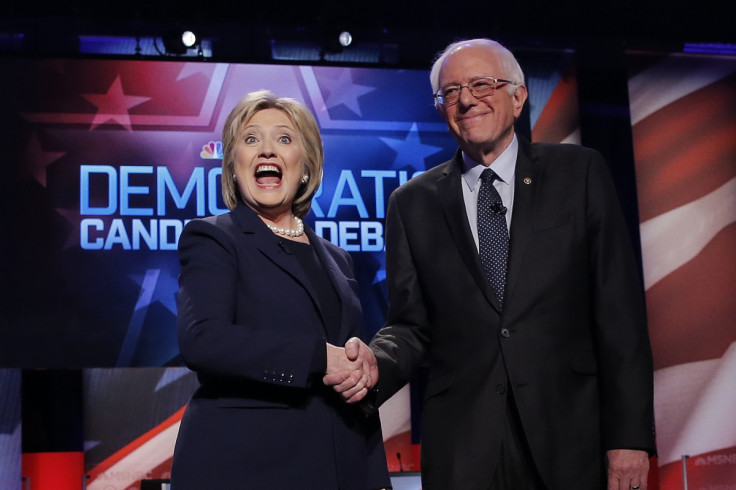Democrat voters 'feel the Bern' as Bernie Sanders overtakes Hillary Clinton in 3 states

Despite narrowly losing out to Hillary Clinton in last week's Nevada Caucuses, US Democratic presidential candidate Bernie Sanders is gaining ground on his rival in several key US states. Sanders, an outsider for the Democrat nomination for president, is pressing his establishment opponent hard, managing to close what was a 25-point deficit in the southern state of Nevada to take 47% of the vote.
And while according to all the polls in South Carolina, the next state to weigh in on the presidential race on 27 February, Sanders faces near-certain defeat, his campaign is being bouyed by strong predictions in several other major swing states.
Prior to the Iowa caucus which fired the starting gun on the race, Sanders was down by as much as 28 points in the key state of Colorado – but after unexpectedly strong showings in each of the three states to vote so far, the Vermont senator seems now to be leading by six, according to numbers in the Washington Free Beacon. He is leading with under-30s by a whopping 46 points, and with Hispanics by three. Colorado votes on 1 March.
In Massachusetts, Sanders is ahead of Clinton by seven points, according to a PPP poll conducted between this month, which again marks a significant rise from earlier surveys, which had him behind by between 25-34 points. And in his home state of Vermont, the same poll has him ahead by the trivial matter of 76 percentage points.
It's not all smooth sailing for veteran social democrat, however. While he passed Clinton in a national poll for Fox News for the first time, he is struggling to win over the black vote, which he'll need if he is to win over a number of other states.
"According to the entrance poll in Nevada, Clinton won black voters 76% to 22%," said Harry Enten of US polling prediction site fivethirtyeight.com. "To put that in context, Clinton's margin is only slightly smaller than Barack Obama's 83% to 14% win with black voters in 2008."
He added: "Many of the upcoming primaries will feature a much higher percentage of black voters than Nevada did. While only 13% of Nevada caucus-goers in 2016 were black, their share in South Carolina will be much higher (55% of South Carolina Democratic primary voters were black in 2008). That's why Clinton is up by 25 percentage points in the South Carolina polls."
More voters wanted
Sanders himself blamed a lower voter turnout than he had wanted.
On the US political show Meet The Press, he said: "We will do well when young people, when working-class people come out. We do not do well when the voter turnout is not large. We did not do as good a job as I had wanted to bring out a large turnout."
The next stop in the Democrat campaign is the South Carolina Primary on Thursday.
© Copyright IBTimes 2025. All rights reserved.






















